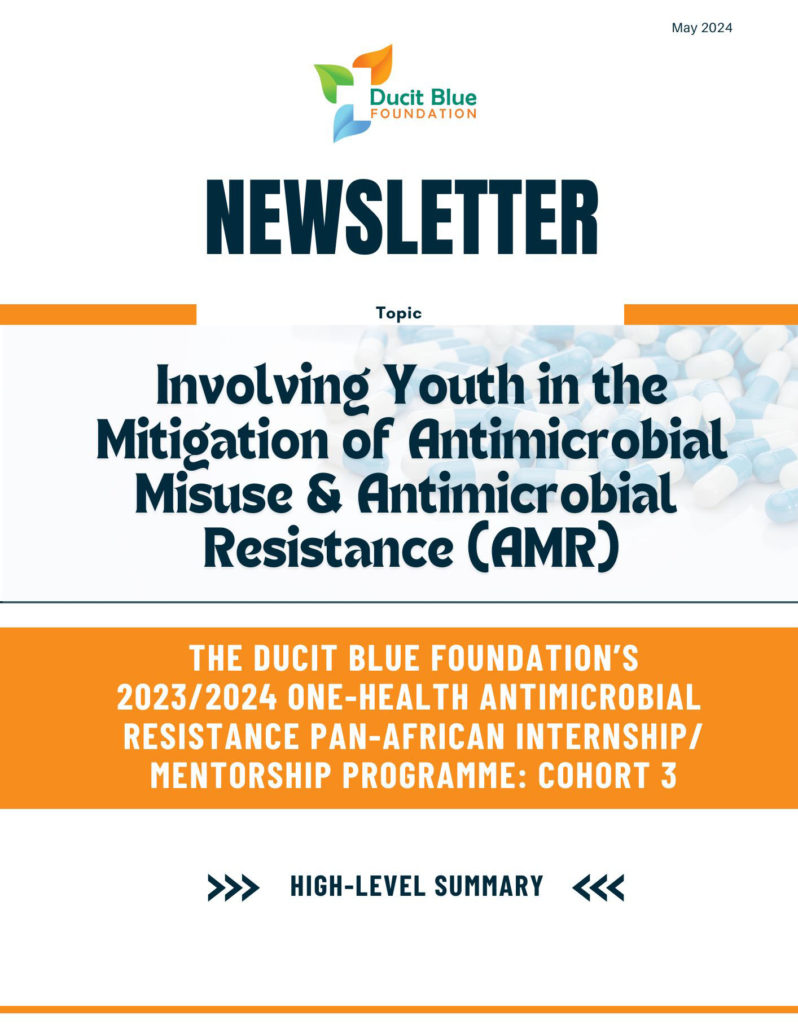
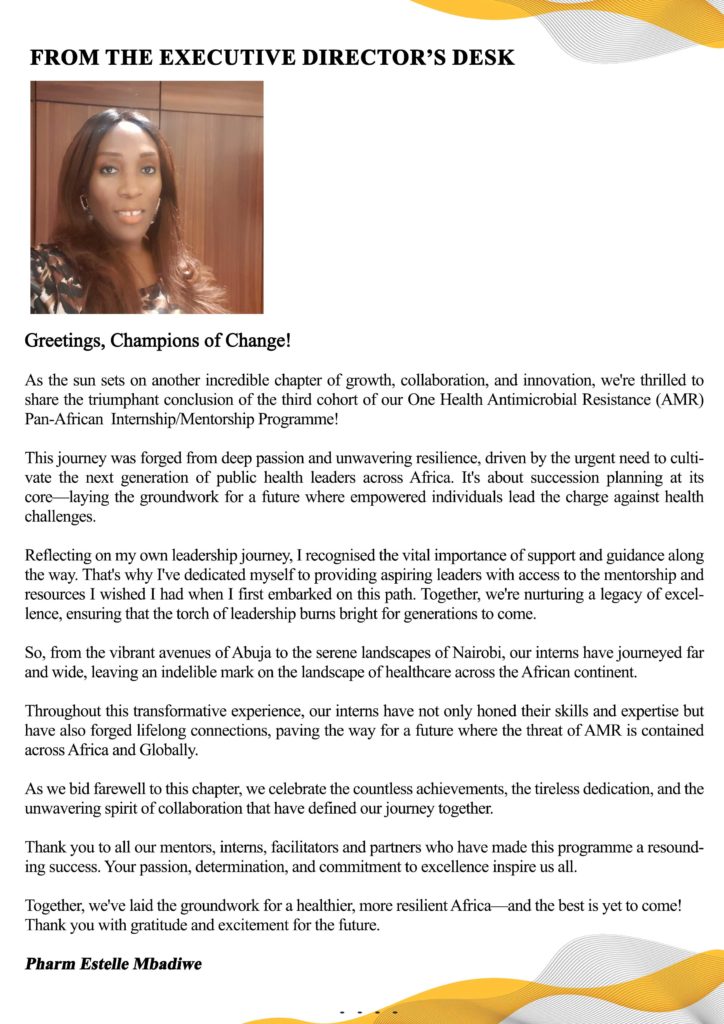
WHAT IS THE DUCIT BLUE FOUNDATION (DBF) ONE-HEALTH ANTIMICROBIAL RESISTANCE PAN-AFRICAN INTERNSHIP/MENTORSHIP PROGRAMME?
The Ducit Blue Foundation One-Health Antimicrobial Resistance Pan-African Internship/Mentorship Programme is a succession planning programme Involving Youth in the Mitigation of Antimicrobial Misuse & Antimicrobial Resistance (AMR), under our Youth Against Antimicrobial Misuse (YAAM) programme.
The rationale for this programme is rooted in the scientific literature that reports:
In 2019, AMR was associated with 4.95 million deaths globally. The Sub-Saharan Africa region experienced the highest burden, with an estimated 1.05 million deaths linked to bacterial AMR and 250,000 deaths directly attributed to it 1,2. AMR is estimated to cost the world about 300 billion to more than 1 trillion dollars in healthcare costs by 2050 3. Furthermore, the World Health Organisation (WHO) included the Global threat of Antimicrobial Resistance (AMR) among the thirteen urgent global health challenges of the next decade 4. This global hike in the AMR burden is largely attributed to the irresponsible use (overuse or misuse) of antimicrobials in humans, animals, and the environment 5.
The education and training of healthcare professionals on antimicrobial resistance (AMR) is a crucial component of both the WHO Global Action Plan and the African Centre for Disease Control (ACDC) AMR Strategic Framework for containing AMR 6,7. Engaging young people in the fight against AMR holds significant importance and Africa has the youngest population in the world, with approximately 70% of sub-Saharan Africa under the age of 30 8. The youth symbolise the coming generation tasked with bearing the outcomes of present decisions or inactions. Initiating their involvement, particularly the One health professionals from an early stage allows us to instil a sense of accountability and equip them to champion responsible antibiotic usage and infection prevention and control measures.
Furthermore, equipping young people with knowledge and skills empowers them to make informed decisions and advocate within their communities, helping to raise awareness about AMR, promote responsible antibiotic use, and advocate for policy reforms. Youth should also be involved in the decision-making processes and recognized as important stakeholders. With their unique perspective and tendency to lead in technological advancements and social movements, young people are well-equipped to drive change and come up with innovative solutions to tackle this global health problem. Involving the youth in the fight against AMR not only secures a healthier future for all but also empowers them to be architects of positive change in their communities and beyond.
With this in mind, this programme was designed to draw from the strength and reported effectiveness of the One Health Approach and adapt to conditions unique to the African continent.
Goal of the Programme
The goal of this programme is to bridge the knowledge gap in the education and training on AMR, through capacity empowerment strategies among young Pan-African One-Health professionals towards reducing the burden of AMR and inappropriate antimicrobial misuse in Africa and beyond, in line with the strategic objectives of the Global Action Plan on Antimicrobial Resistance [8] and global best practice. . Also, to provide them with the tools and skills to be future African public health leaders.
Objectives
- To provide an innovative platform for young Pan-African graduates of One-Health disciplines to learn AMR prevention, and control strategies, and imbibe an inter-professional and multidisciplinary teamwork approach from an early onset.
- Develop a tailored curriculum to further empower the youth on Strategies on AMR.
- To strengthen the role of Pan-African One-Health professionals in the fight against AMR through advocacy, and localising the AMR message across Africa.
- To provide a platform for AMR mentors to guide young health professionals in future careers in AMR mitigation.
KEY CONCEPTS
1.1 One Health
Antimicrobial Resistance (AMR) is a critical One-Health security concern, as addressing it necessitates collaboration across human, animal, and environmental sectors. Therefore, our program targets undergraduates and young professionals, who are future prescribers and dispensers of antimicrobials and public health professions, play a pivotal role in responsible antimicrobial use (AMU). Educating them on the importance of responsible AMU and the risks associated with AMR is crucial for fostering behavioural change and curbing antimicrobial misuse.
This cohort targeted recent One health graduates (<less than 2 years) from Medical doctors, Veterinarians, Pharmacists, Environmental scientists, and Public health professionals. This is crucial to improve multisectoral and multidisciplinary collaboration and solutions for AMR. solutions for AMR. The One Health (OH) concept was further reinforced via the:
Ducit Blue Foundation (DBF) X One Health Lessons (OHL) Partnership
Through this partnership, our interns received training in cascading knowledge strategies and effectively communicating One Health (OH) challenges to diverse audiences. Following their training, they delivered lectures ( either virtual or physical) on OH issues.
Through this partnership, our interns received training in cascading knowledge strategies and effectively communicating One Health (OH) challenges to diverse audiences. Interns went through lessons on how to educate multiple audiences on One Health problems such as AMR, and Zoonoses. Our interns had to fulfil 3 stepped criteria to be certified, which was closely monitored by both the DBF and OHL teams.
Upon completion of their tasks, all 20 interns were awarded the OHL Leadership certificate, recognising them as OHL Leaders. Additionally, three interns pursued further certification and attained the status of OHL Ambassador.
Through this partnership, our interns received training in cascading knowledge strategies and effectively communicating One Health (OH) challenges to diverse audiences. Interns went through lessons on how to educate multiple audiences on One Health problems such as AMR, and Zoonoses. Our interns had to fulfil 3 stepped criteria to be certified, which was closely monitored by both the DBF and OHL teams.
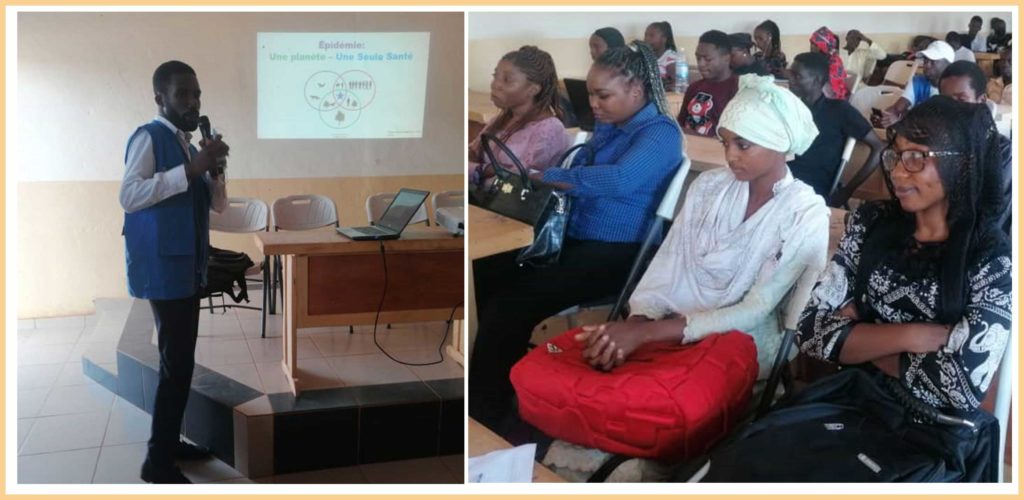
Image 2: Gaspard Junior Ayissi, an Intern from Cameroon delivers a lecture on One-health to nursing students in his university community.
1.2 Pan-African
The burden of AMR in Africa is greater than in any other region of the world 2, this programme was designed to ensure a continent-wide supplement to gaps in AMR knowledge and mitigation among the youths. With the understanding that integration of various cultures, languages, and experiences across the continent can ensure a more balanced approach and view to cross-border collaborations in AMR mitigation.
As such, the Pan-African nature of the internship was represented in the Interns’, Mentors’, and Facilitators’ profiles. Overall, the programme had the involvement of 17 African countries represented by Interns, Mentors[3] [4] [5] , and Facilitators.
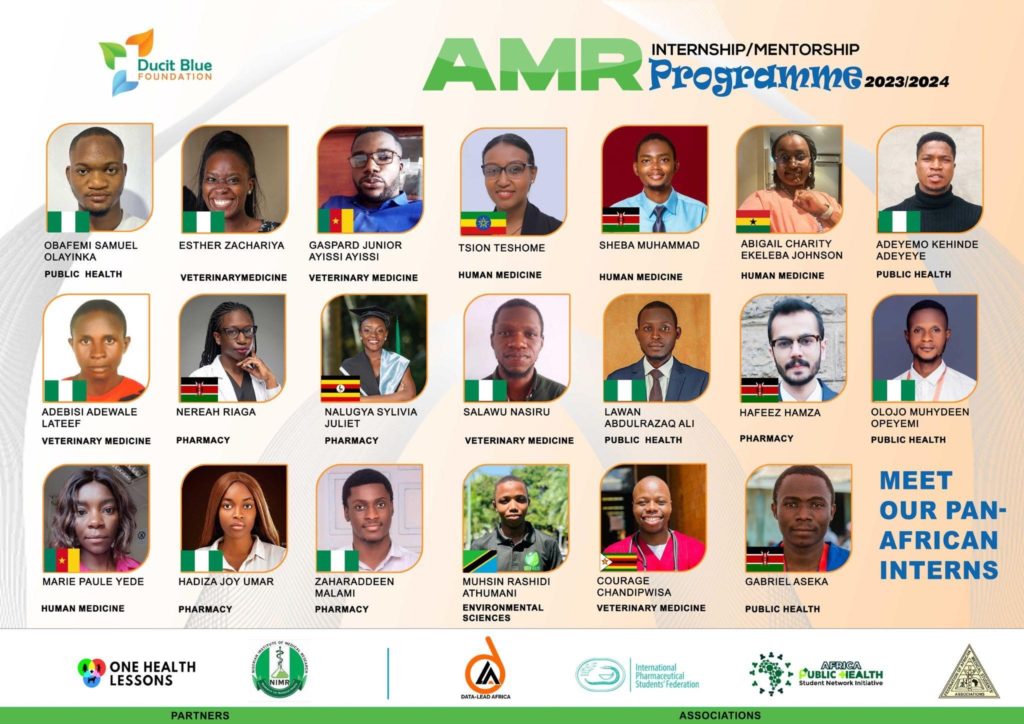
Image 3: Interns for Cohort 3
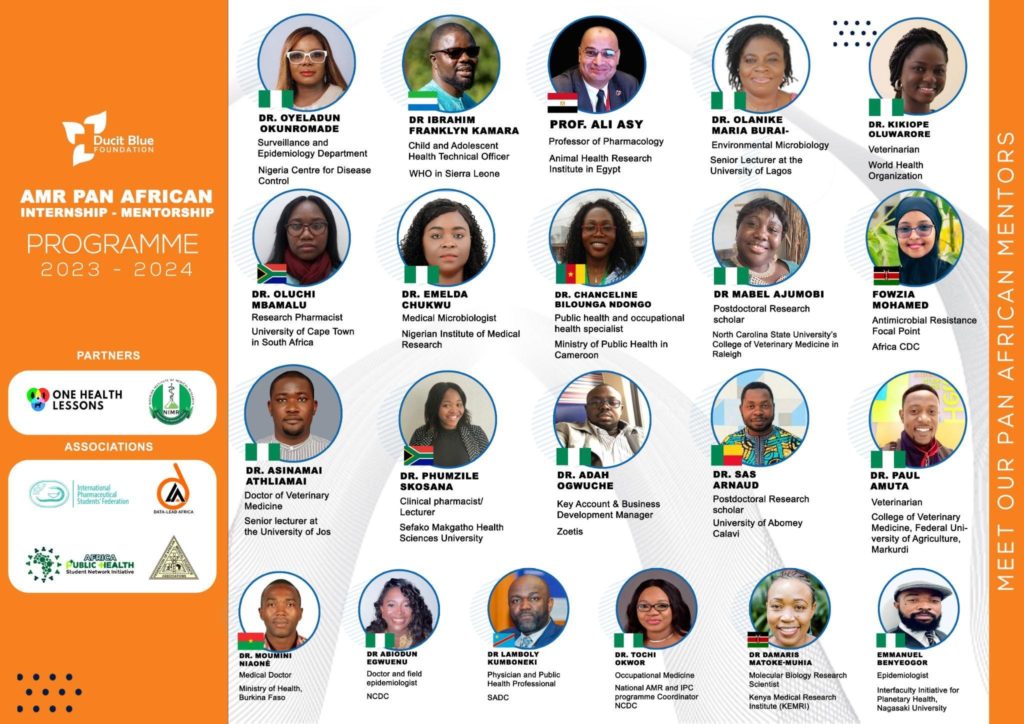
Image 4: Mentors for Cohort 3
1.3 Internship/Mentorship
This program is deeply committed to cultivating a new generation of Antimicrobial stewards among Africa’s youth. Recognising the importance of nurturing a skilled workforce equipped to tackle the challenges of AMR and other public health issues, mentorship plays a vital role in transferring knowledge and inspiring greatness in the next generation.
Each intern was paired with a mentor based on a careful alignment of the intern’s career aspirations and interests with the mentor’s expertise. Mentors were drawn from diverse regions and organisations across Africa. Importantly, the duration of the intern-mentor relationship extended beyond the program’s timeline, determined by personal agreements between both parties. This flexibility was highlighted in positive feedback from both interns and mentors, underscoring the value of sustained mentorship in professional development.
Mentorship was impactful as seen below:
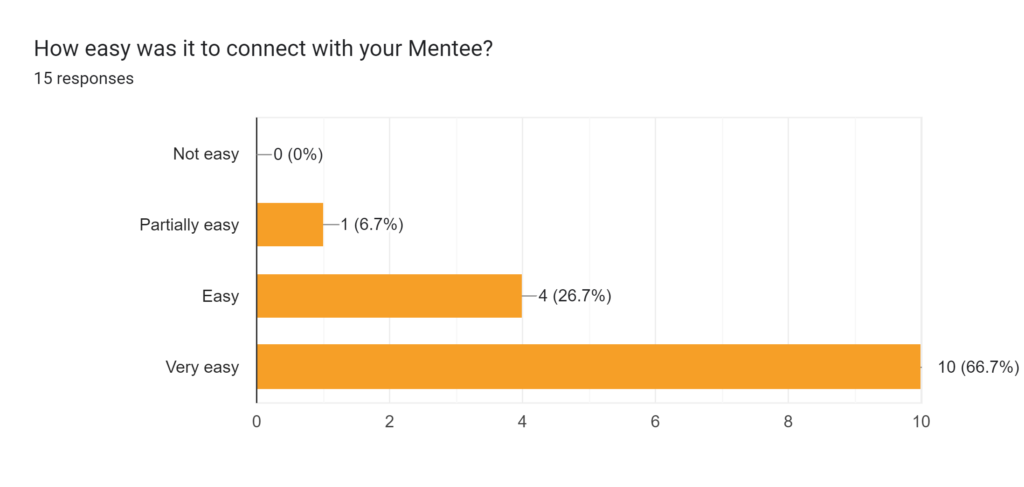
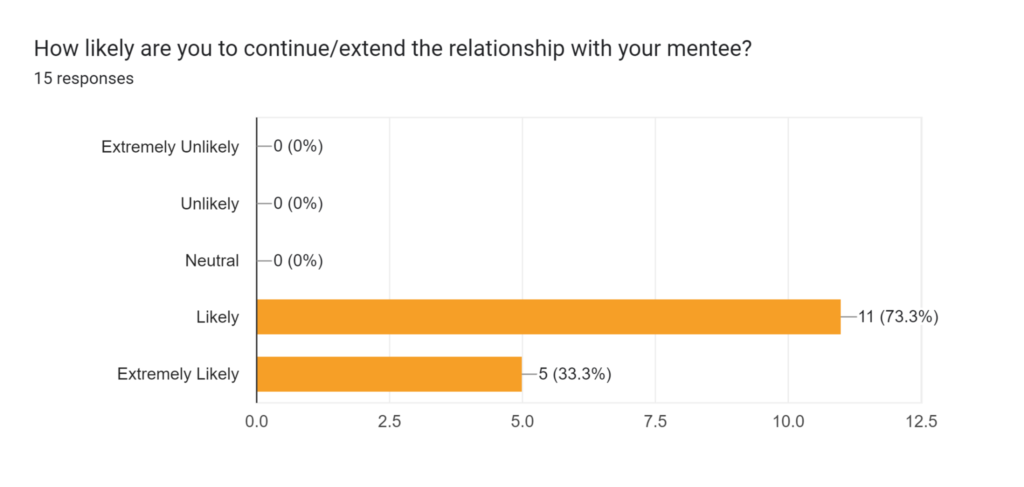
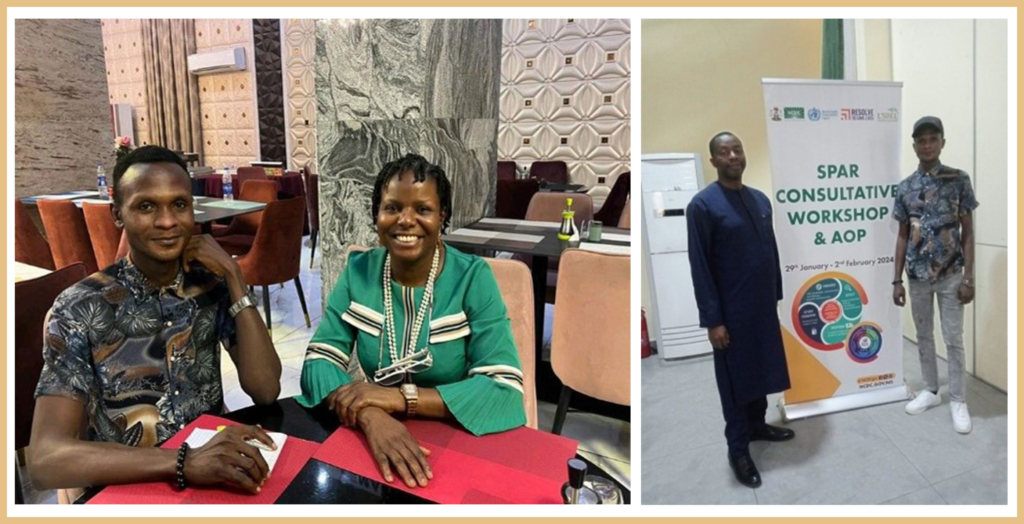
Image 5: Intern Olojo Muhydeen with his mentor Dr Oyeladun Okunromade (LEFT) at the National Action Plan for Health Security (NAPHS) Annual Operational Planning workshop meeting held in Lagos, Nigeria
DBF intern Olojo Muhydeen was sponsored by his Mentor – Dr Oyeladun Okunromade, to attend the 5-Day National Action Plan for Health Security (NAPHS) Annual Operational Planning workshop meeting held in Lagos, Nigeria. This was a unique exposure into the work that goes into health security planning, engaging in diverse panel discussions and networking with healthcare experts.
1.4 The Third Cohort
This is the third cohort of our programme. Each cohort builds upon the foundation laid by its predecessors, sharing a common overarching goal while delving into unique areas of focus. Lessons learned and recommendations gathered from interns, mentors, partners, and stakeholders serve as invaluable resources for enhancing the quality of subsequent cohorts, facilitating the integration of innovative concepts and areas of emphasis that align with the vision of the “Africa We Want”. The cohort also had the unique opportunity to leverage on lessons learnt from the DBF Executive Director, Pharm Estelle Mbadiwe experience as a Kofi Annan Global Health Leader fellow, including concepts such as African History and public health, global health diplomacy and Coaching, as well as other leadership tools.
Cohort 3 distinguished itself with a particular emphasis on expanding the research, data analysis, and publication modules. This endeavour was enhanced through a collaborative effort between the Nigerian Institute of Medical Research (NIMR) and Data Lead Africa. Interns received longer hands-on training in research methodology, ethics, publication, and proficiency in data collection and analysis tools, including Kobo Toolbox, among others.
Furthermore, this cohort featured an information cascade session centered around One Health principles, as well as a unique multidisciplinary approach to capstone projects, addressing key pillars of the AMR Global Action Plans.
1.5 Meet the Partners
1.5.1 One Health Lessons (OHL)
One Health Lessons is an educational charity that creates and delivers high-quality and engaging science lessons focused on the interconnection between public health and the health of animals, plants, and the environment.
Their mission is to inspire children and adults around the world to value One Health and their vision is to transform societies to create a healthier and more sustainable planet for all.
For More information at www.OneHealthLessons.org

DBF’s partnership with OHL was strategic to strengthen the presence and implementation of the One Health concept, and the knowledge cascade approach in the programme.
1.5.2 Nigerian Institute of Medical Research (NIMR)
NIMR has a vision to be the leading national institution building capacity for basic, applied and operational research for the promotion of national health and development. The mission of the NIMR Foundation is to mobilise resources, build and expand capacity for translational research on diseases and conditions of public health importance in Nigeria and promote innovation, development and commercialization of medicines, vaccines and technologies for health care delivery.
Partnership with NIMR included the curriculum review as well as strengthening the research component and publication component of the programme
For More information at https://nimr.gov.ng/
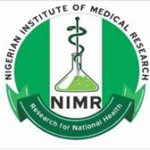
1.6 Collaborators
Several collaborators offered unique inputs into the success of the program.
Student and Professional associations such as IPSF (International Pharmaceutical Students Federation), FAMSA (Federation of African Medical Students’ Association) and APHSN (African Public Health Students Network). These organisations were instrumental in the widespread publicity of the program using their networks as well as feedback on programme improvement

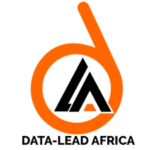
The Data Lead Africa team led by Dr. Ayoola Arowolo also collaborated on the data for public health sessions, expanding insight on data types, handling, collection, visualisation, and analysis using various tools
1.7 Leveraging the Kofi Annan Global Health Leadership Fellows Programme

Fellows and faculty from the prestigious Kofi Annan Global Health Leadership Programme played a pivotal role in enriching the programme through their unique perspectives, expertise, and commitment to advancing global health and leadership in AMR and One Health. Their involvement facilitated collaborative efforts and the exchange of knowledge among interns and other important stakeholders within the programme. Here are some highlights of their key activities and contributions:
Curriculum Design: By leveraging the expertise of Pharm Esteller Mbadiwe, a Kofi Annan Global Health Leadership Fellow, the curriculum was designed to specifically cultivate a new generation of leaders committed to addressing the complex challenge of AMR through a One Health approach.
Mentorship: Five Fellows served as mentors during the programme which demonstrates their commitment to advancing AMR and One Health, they include: Dr Damaris Matoke, Prof. Ali Asy, Dr Moumini Niaone, Dr Oyeladun Okunromade, Dr Lamboly Kumboneki, and Dr Oluchi Mbamalu.
Their mentorship empowered their mentees to delve into innovative solutions and hone critical thinking skills essential for their roles as future public health leaders. Additionally, their expertise offered valuable guidance, mentorship, and support for the interns’ capstone projects.
Facilitation of Internship Sessions: Six facilitators were drawn from the Kofi Annan Global Health Leadership Fellowship network of fellows and faculty, which were:
Faculty:
- Dr Alex Coutinho, the Kofi Annan Global Health Leader Programme coordinator Dr. Ade Adeyemi, a Global Health Policy Expert at UK Department of Health and Social Care
- Dr Bonheur Dounebaine, a Medical Epidemiologist at Africa CDC
Fellows:
- Pharm Estelle Mbadiwe, Founder Ducit Blue Foundation
- Dr. Moumini Niaone,
- Prof. Flavia Senkubuge, Acting Deputy Vice-Chancellor and Vice Principal at the University of Pretoria, South Africa
Fireside Chat: During an interactive and engaging career fireside chat on “navigating career pathways for future public health leaders in Africa” five Kofi Annan Global Health Leadership Fellows shared their career and leadership journeys, equipping the interns with the knowledge and confidence needed to drive positive change and become future Public health and One health leaders in Africa. The Fellows included: Pharm. Estelle Mbadiwe (Host), Dr. Adaeze Oreh, Prof. Ali Asy, Dr. Damaris Matoke, Dr Mary Ashinyo.
Youth Sharing and Learning Webinar: In collaboration with Dr. Rene English ( Associate Professor at Stellenbosch University Cape Town Area, South Africa. ), another distinguished Kofi Annan Global Health Fellow and the Founder of the SU-Africa Global Health Student Initiative, co-hosted a Youth Sharing and Learning Webinar. This webinar served as a platform to raise awareness about Antimicrobial Resistance (AMR), One Health, and Public Health in Africa. It facilitated the exchange of knowledge and learning among interns from both programs, fostering networking opportunities and the development of professional relationships.
The Kofi Annan Global Health Leadership Fellows made invaluable contributions to this third cohort. Their dedication, expertise, and fervour for tackling intricate health issues, fostering collaboration, and empowering future African leaders greatly enhanced the program’s success, impact, and lasting influence. Their involvement underscores the significance of collective endeavours, mentorship, and leadership in advancing global health and effectively addressing the pressing challenges presented by AMR and One Health for Public Health solutions in Africa and beyond.
INTERNSHIP PROGRAMME DETAILS
2.1 Application and Selection Process
The call for application was based on merit-based selection criteria informed by insights and feedback gleaned from the previous two cohorts of the program, conducted in 2020/ 2021 and 2021/2022. The focus this time was on recent graduates (< 2 years) from five One Health disciplines across Africa, encompassing both anglophone and francophone countries. The virtual nature of the programme required applicants to commit 6-8 hours per week and have access to a personal computer and a stable internet connection
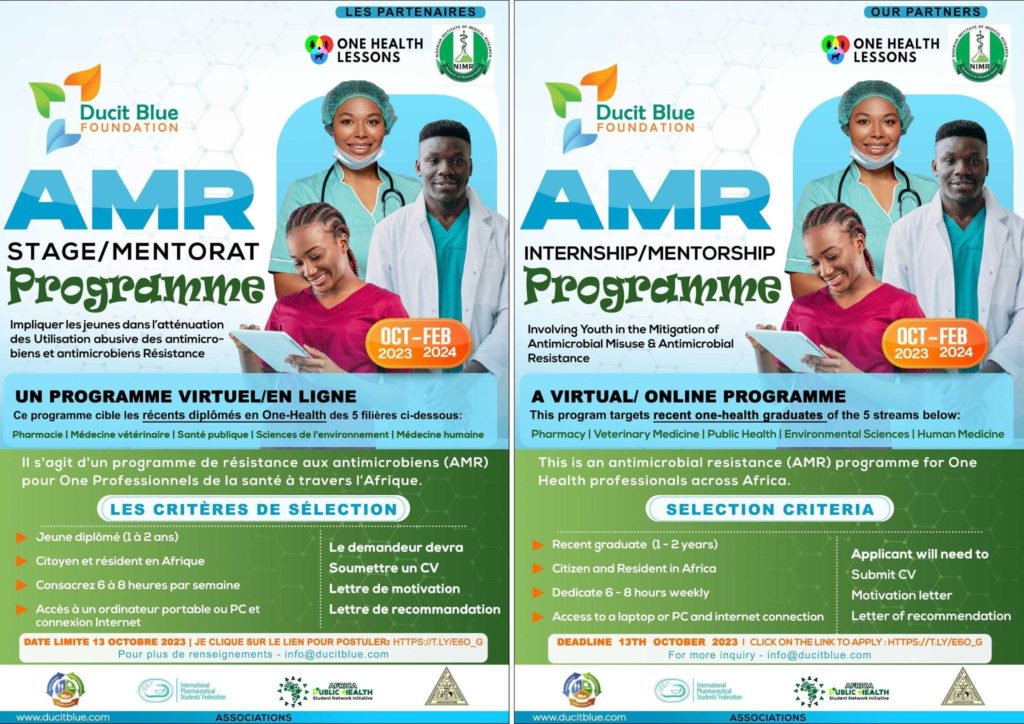
Image 7: Call for application Cohort 3 (French and English calls)
Application documents included a CV, motivation letter, statement of demonstrated interest in AMR and 2 letters of recommendation.
Each application was evaluated using a merit-based scoring scheme with the assistance of internal and five independent reviewers. Applications were received from 17 countries across Africa, and the final 20 Interns were selected across the 5 streams. from 8 African countries
The Ducit Blue Foundation leveraged its extensive One-Health stakeholder network across sub-Saharan Africa and relationship with returning mentors to select 21 Mentors from 10 African countries, with expertise in antimicrobial resistance (AMR), and One-Health, and have distinguished careers in their respective fields.
There were also a total of 41 facilitators, cutting across 13 African countries, including some mentors.
2.2 From Launch to Closure
The programme ran for 4 months between 30th October 2023 – 9th March 2024.
The Launch day had in attendance Interns, mentors, partners, Africa CDC representative, 2 former interns and the DBF team. The event commenced with a pre-test designed to assess the AMR baseline knowledge of interns, the pretest results were analysed and later compared to a post-test at the internship closure, as part of the programme evaluation.
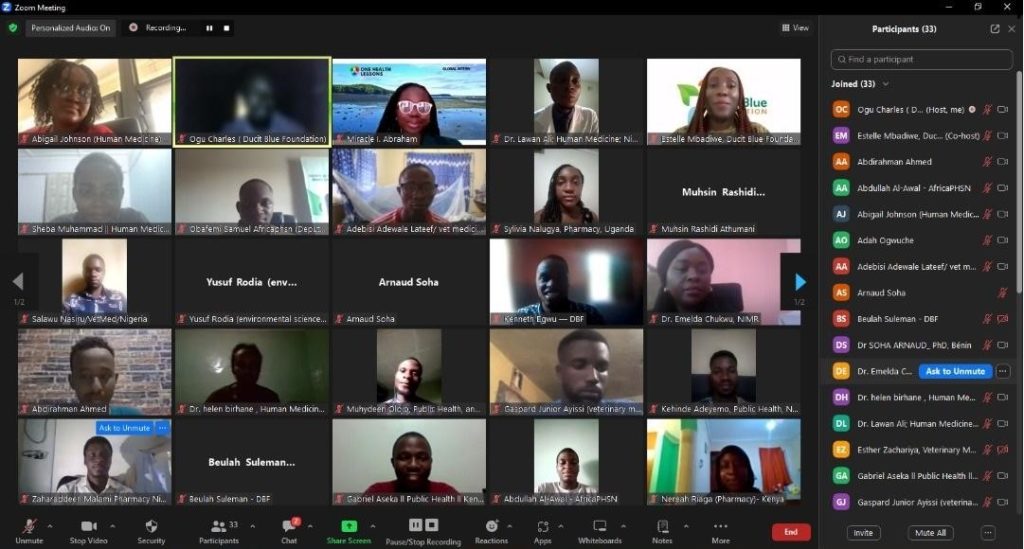
Image 8: Launch attendees Cohort 3
It’s crucial to reiterate that the program aims to offer recent graduates and young professionals a platform to acquire insights into AMR prevention and control strategies, creating future public health leaders. It is designed as a collaborative initiative, to foster interprofessional collaboration and teamwork among participants. Over the course of the programme, there were 49 sessions led by 41 facilitators representing 13 African countries and 32 different organisations across Africa.
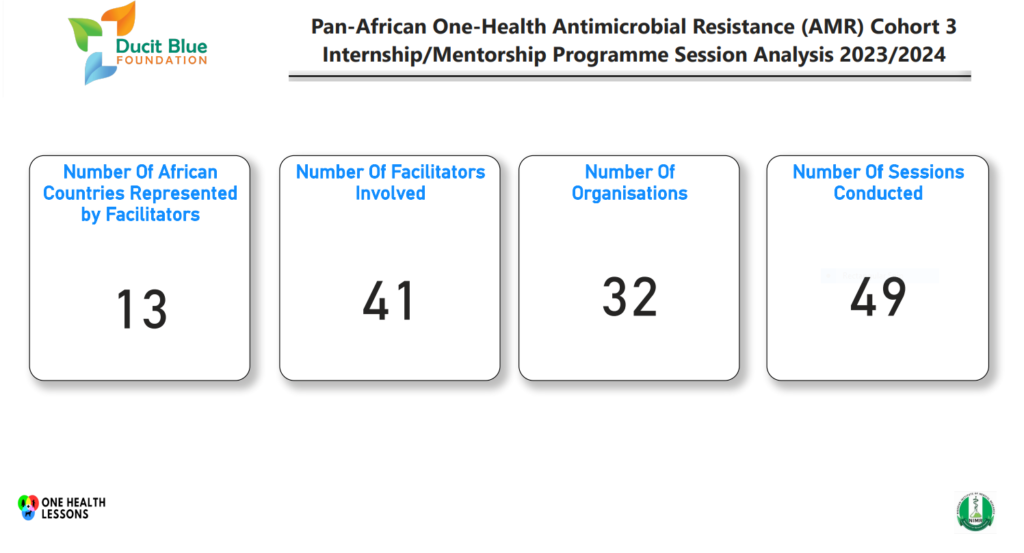
Image 9: Cohort 3 Session Summary Analysis
2.3 Core Modules and Delivery
2.3.1 Core Modules
The curriculum covered 6 core as follows:
- Building The Foundation of AMR Awareness and One-Health Strategies
- Advocacy and Media and Community Engagement
- Fundamentals of Research, Data Analysis and Publication
- One Health Lessons Ambassador program
- The Capstone Project
- Leading With Your Value: Building Leadership Qualities: Career
2.3.2 Programme Delivery
The programme was designed and delivered as a fully remote/virtual internship learning session approximately 3 times a week over the course of the programme.
Google Classroom was used to ensure full engagement and interaction, which included an internship delegate pack with all the requirements for the program, communication platforms were also utilised for the mentors and interns, including to further encourage networking.
The sessions were deliberately structured to foster an interactive learning experience, as well as a One Health and multidisciplinary approach to collaboration and learning, with participants from all five streams engaging in group activities together. A culture of openness, fairness, and respect was cultivated to encourage active participation and uphold best practices. There were also specified criteria for the interns to be eligible to complete the programme and receive their certificates
2.3.3 Monitoring and Evaluation (M and E)
Monitoring and evaluation were ensured via various channels.
- A pre-test and post-test to compare the improvement of the interns, alongside the achievement of personal and programme goals.
- Post-sessional feedback forms to evaluate each session from interns and facilitators
- Mid-term feedback capture and lessons learnt meetings with interns and mentors.
- End-term feedback capture and lessons learnt meetings with interns and mentors.
- Weekly monitoring of interns’ attendance.
- Completion of OHL lessons programme and completion of capstone project
2.4 Translating Theory to Practise
2.4.1 One Health Group Activities during the Internship
Multi-Country National Action Plan (NAP) Review.
The Interns reviewed the National Action Plans of 8 countries across Africa in four One-health multidisciplinary groups. They collaborated to propose recommendations and develop innovative solutions focused on addressing AMR, aligning with the five pillars of the Global Action Plan on AMR.
World Antimicrobial Resistance Awareness Week 2023 (WAAW23)
Interns engaged in various activities such as crowdsourcing words on AMR, Art/Creative Exhibitions, localised AMR awareness videos created by our interns in their local languages, X space event on reducing AMR in partnership with NiMSA SCOPH, A webinar session on African Youth AMR Forum 1.0 organised in collaboration with IPSF Afro, X- chat session in collaboration with AMR Narrative and CIDRAP, and Social media posts promoting translated AMR Messages. A total of 42,000 engagements/impressions were gained online throughout the WAAW23.
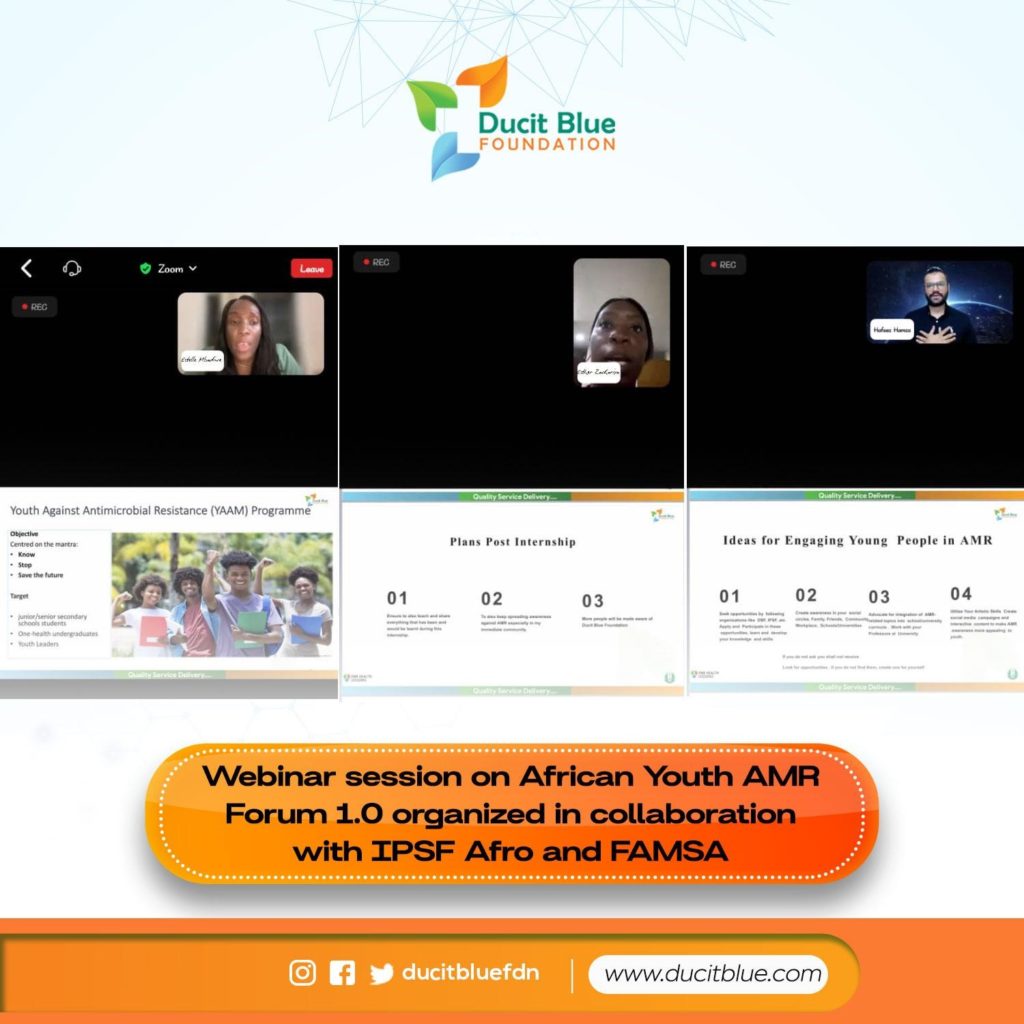
- Image 10: Webinar session held during the WAAW’23
Leadership Capstone Project (LCP)
As a pivotal component of the Internship Programme, the Interns were tasked with delivering a project that advances solutions for each of the four pillars of the Global Action Plan on Antimicrobial Resistance (AMR). Four one-health teams were created based on the AMR Global Action Plan Pillars; Awareness, Surveillance, Stewardship and IPC/Biosecurity. The Capstone Project enabled the interns to apply their knowledge, skills, and creativity to develop actionable solutions for combating antimicrobial resistance in alignment with the Global Action Plan on AMR. Some of the deliverables required were:
- Project Charter and Workplan
- Research, Data Collection & Analysis report
- Final Report and Manuscript
- 1-page Policy Brief
Through rigorous research, collaboration, and support from the mentors, the interns demonstrated their commitment to advancing the fight against antimicrobial resistance. The Capstone Projects presented by the interns showcased a diverse range of innovative solutions tailored to address the unique challenges and opportunities associated with each pillar of the Global Action Plan on AMR as indicated below:
Team Awareness
- Antimicrobial Awareness and Knowledge Level of One-Health final year students in Ahmadu Bello University, Zaria and Kwara State University, Malete, Nigeria.
Team Surveillance
- Review of the Strengths and Limitations of existing surveillance systems against Antimicrobial resistance in Kenya and Ghana.
Team Stewardship
- Antimicrobial Stewardship in Africa: A Review of National Action Plans Across Five African Countries.
Team IPC/Biosecurity
- A Comparative Analysis of Infection Prevention and Control (IPC) Guidelines across Kenya, Tanzania, Zimbabwe and Nigeria.
Upon submission of the required capstone project documents, an internal review was conducted by the DBF team thereafter, the capstone project documents were shared with eight experts/mentors for evaluation of the feasibility, scalability, and potential impact. Subsequently, the projects will be further developed, implemented, and integrated into existing initiatives to strengthen the global response to AMR.
2.4.2 External Activities
During the internship, the interns were encouraged to participate in various capacity-building, knowledge cascade and professional development activities.
DBF interns Hafeez Hamza and Nereah Riaga were sponsored to attend the inaugural primary healthcare congress at AMREF International University in Nairobi, Kenya. It was an incredible experience for them as they engaged in diverse panel discussions, explored research posters and networked with healthcare experts.
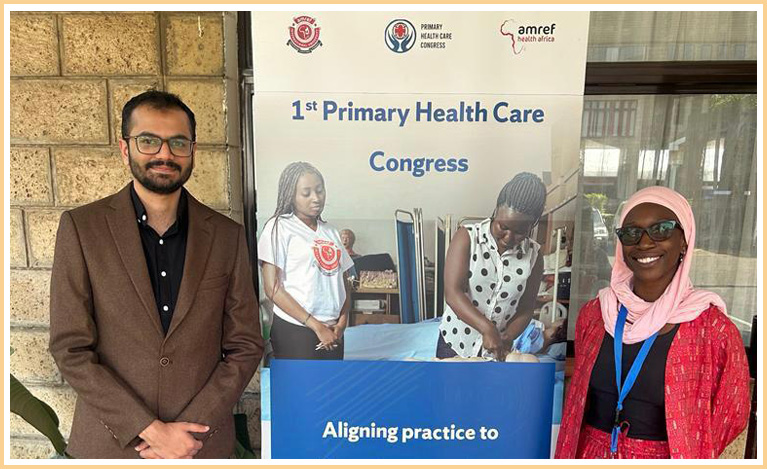
Image 11a: DBF interns Hafeez Hamza and Nereah Riaga at the inaugural primary healthcare congress at AMREF International University in Nairobi, Kenya
DBF interns Sheba Muhammad and Nereah Riaga participated in the Kilifi County IPC workshop held in Kenya during WAAW’23. Sheba was one of the winners of the hand washing competition and earned the title ‘IPC champion for WAAW 2023’.
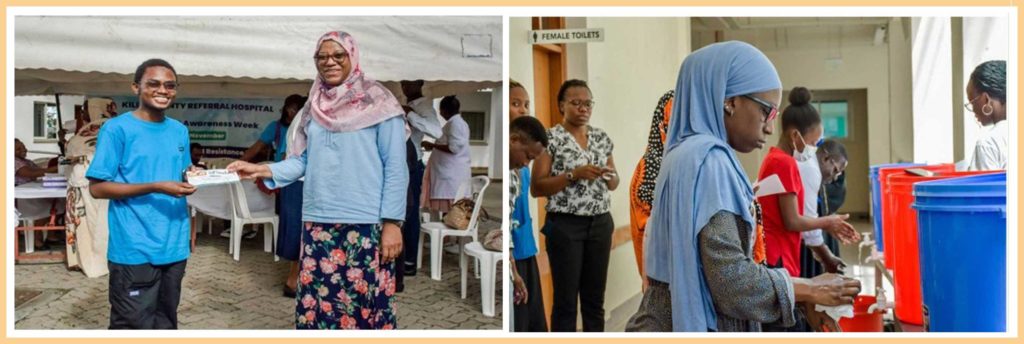
Image 11b: Intern Sheba Muhammad (LEFT) and Nereah Riaga (RIGHT) at the inaugural primary healthcare congress at AMREF International University in Nairobi, Kenya
DBF intern Olojo Muhydeen was sponsored by his mentor, Dr. Oyeladun Okunromade, to participate in the 5-Day National Action Plan for Health Security (NAPHS) Annual Operational Planning workshop meeting in Lagos, Nigeria. During the event, he gained insights into health security planning, actively participated in diverse panel discussions, shared his opinions, and networked with various One health experts.
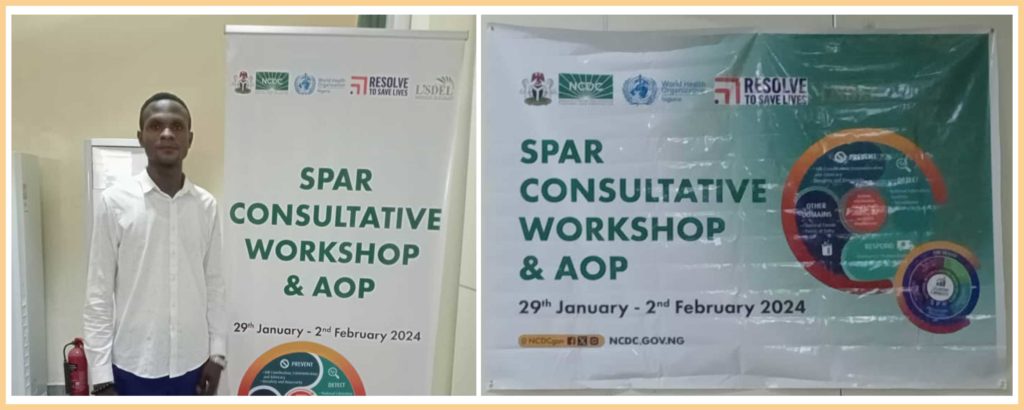
Image 12: Intern Olojo Muhydeen invited by his mentor Dr Oyeladun Okunromade) at the National Action Plan for Health Security (NAPHS) Annual Operational Planning workshop meeting held in Lagos, Nigeria
DBF Intern Courage Chandipwisa participated in the two-week training program hosted by Bio-Imaging West Africa 2024, organised by the West African Centre for Cell Biology of Infectious Pathogens (WACCBIP) – University of Ghana.
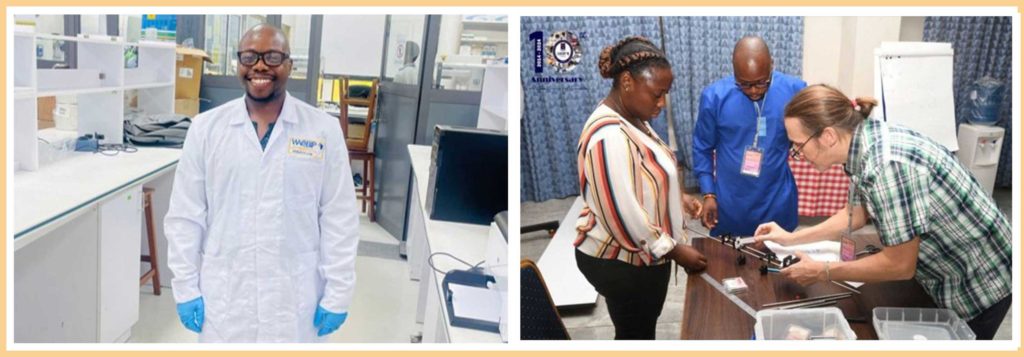
Image 13: Intern Courage Chandipwisa at a two-week training program hosted by Bio-Imaging West Africa 2024.
DBF Interns Nereah Riaga and Gabriel Aseka proudly represented DBF as panelists at the 2nd Joint Journal Exchange held at Egerton University in Nakuru, Kenya. They engaged in a panel discussion focused on AMR, and ongoing pharmacological research aimed at addressing this pressing public health issue. It was a fantastic opportunity for them to share the knowledge they had gained through the program with the audience and to answer questions related to AMR.
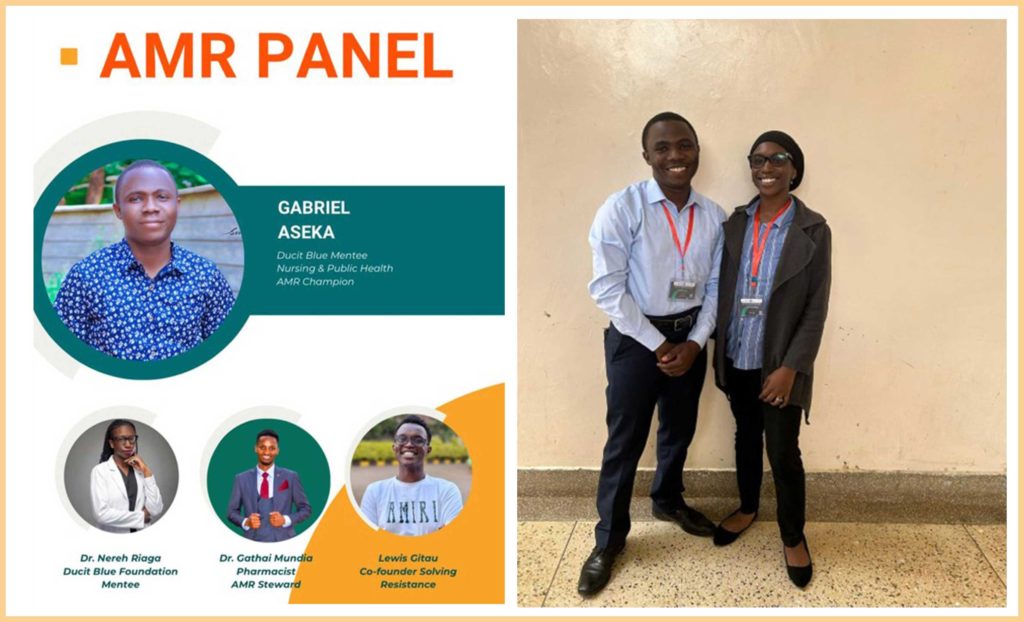
Image 14: Interns Nereah Riaga and Gabriel Aseka representing DBF at the 2nd Joint Journal Exchange at Egerton University in Nakuru, Kenya as panellists.
DBF Intern Hafeez Hamza represented DBF at the inaugural meeting of the African Youth AMR Alliance Task Force held in Nairobi, Kenya’. The Task Force aims to amplify the voices of youth in the African continent, synergize AMR efforts through collaboration and advocate for African priorities in preventing AMR.
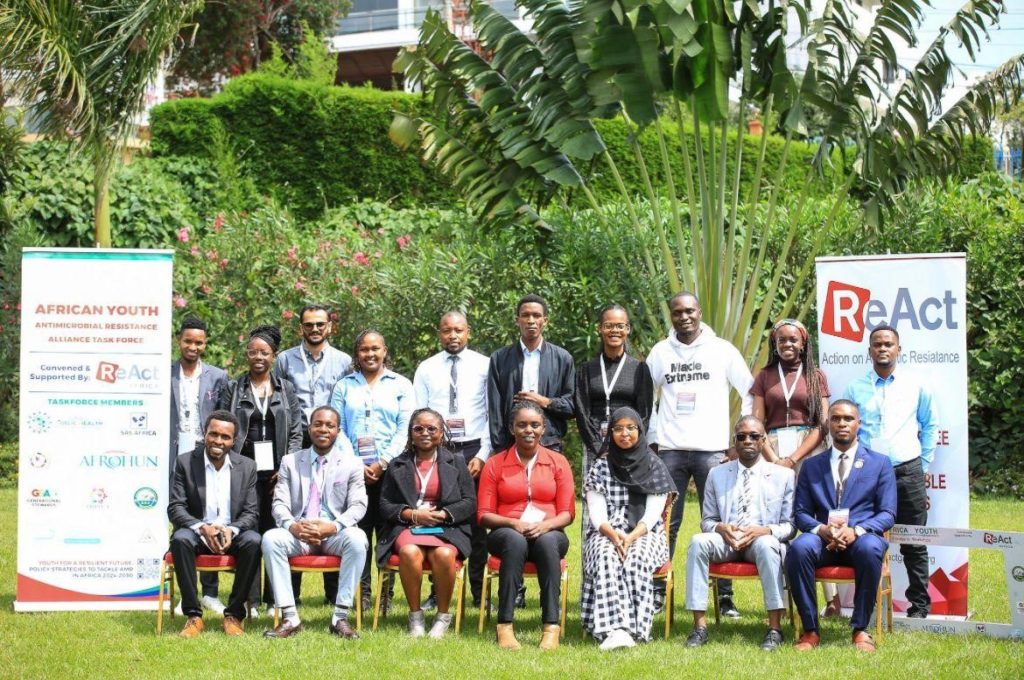
Image 15: DBF Intern Hafeez Hamza (standing third from the left) representing DBF at the African Youth Alliance AMR Task Force meeting held in Nairobi, Kenya.
2.5 Graduation Ceremony
The program concluded with a Graduation Ceremony held on March 9, 2024, bringing together global health experts and stakeholders. This event commemorated the achievements and progress of the interns/mentees, while also acknowledging the exceptional contributions of the mentors, facilitators, and partners towards their professional development journey and advancing knowledge and research in the field of antimicrobial resistance (AMR) and One Health.
The event encompassed a range of activities, including presentations and speeches, which spotlighted the achievements, experiences, and insights gained by the interns/mentees throughout the program. Some of the notable highlights included:
- Keynote Speech: The Nigeria Country Team Lead of FAO-ECTAD – Dr Otto Muhinda-Vianney, delivered a keynote speech focusing on the importance of AMR and One Health, current challenges and opportunities, and the role of mentorship in shaping the future of Africa. He assured the interns that they were in the ideal environment and making significant progress. He urged them to apply all the knowledge and skills they had acquired from the program.
- Capstone Project Presentations: Interns and mentees showcased their internship experiences through the capstone projects, providing valuable insights into their unique journey of collaborating in a One Health and multidisciplinary approach to address AMR challenges throughout the programme.
- Mentor Appreciation: A special segment was dedicated to acknowledging and honouring the mentors from cohorts 1 to 3 for their guidance, support, and commitment to fostering the professional development of the mentees. Thereafter, mentors were invited to share their experiences, insights, and reflections through the programme.
- Certificate Distribution: Mentors and Mentees received certificates of completion and recognition for their participation, dedication, and achievements throughout the programme.
IMPACT OF THE PROGRAMME
3.1 Overall Improvement of Interns’ Baseline AMR Knowledge
The programme significantly impacted the interns’ baseline knowledge of AMR. Interns demonstrated a notable improvement in their understanding, as evidenced by their pre-test and post-test scores across several parameters.
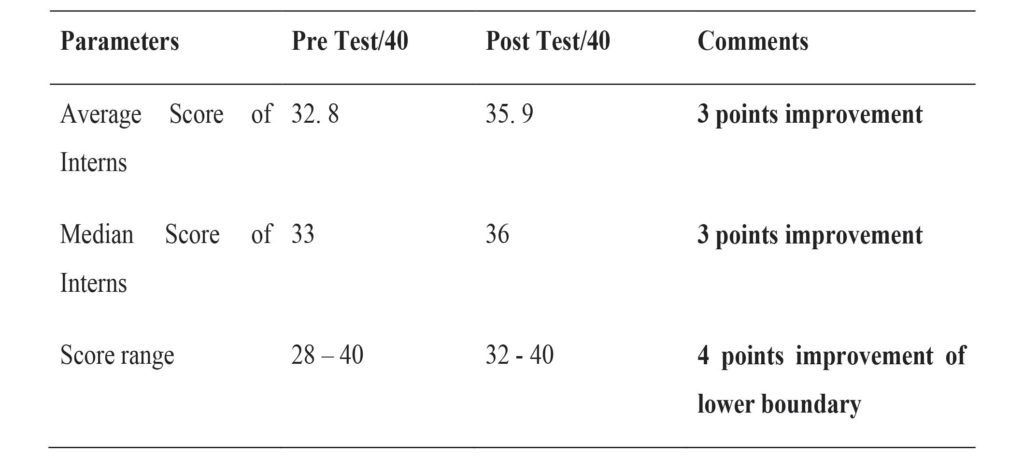
While there was a clear numerical improvement in the scores, further statistical analysis was conducted to determine the significance of these improvements. The analysis yielded a p-value of 0.50, which fails to reject the null hypothesis of no significant difference between the pre-test and post-test scores.
Despite the positive trends, the p-value of 0.50 emphasises the need for a larger involvement of young professionals and stakeholders in internship programmes. This aligns with DBF’s goal to expand the programme and cascade more knowledge to this often neglected group of pre-service training and young professionals.
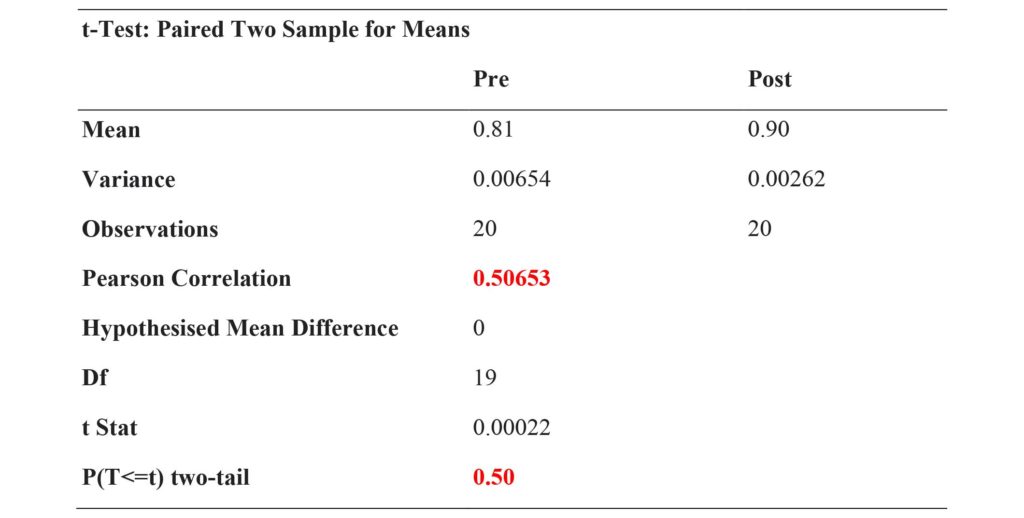
However, a consideration of certain factors such as;
- The pre-test scores indicate a relatively high level of baseline knowledge among the interns (minimum score: 28/40, above average).
- The post-test scores further support this observation (minimum score: 32/40, above average).
All these suggest that the internship program selected a group of interns with a strong foundation in AMR, meaning they are well-placed to lead the charge as AMR champions across the continent. The test was just one parameter for assessment of the programme, as multiple quantitative and qualitative feedback was received.
Furthermore, there was no shortage of qualitative evidence to back up this claim from the interns

3.2 Succession Planning for Future Public Health Leaders
The internship program serves as a pivotal tool for succession planning in the creation of future public health leaders. By providing recent African youth and young professionals with opportunities to engage in hands-on experiences, gain insights into critical public health issues like AMR, and collaborate in a multidisciplinary environment, the program nurtures the skills and competencies needed for leadership roles in the field. Furthermore, the interns also have the opportunity to cascade lessons learnt through the One Health programme and the sharing and learning workshop in collaboration with SU, panel discussions and multiple successful advocacy and awareness efforts.
In the feedback forms, the interns expressed that the programme was highly relevant to their careers as future public health leaders.
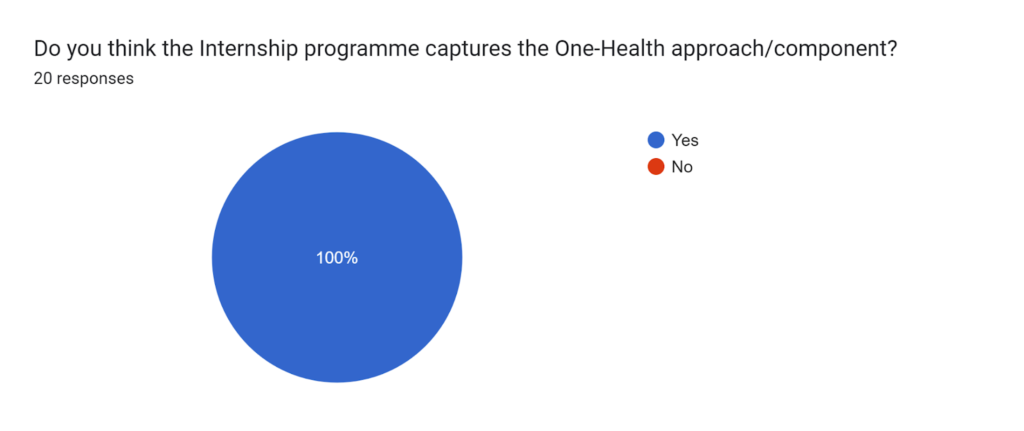
One Health Approach
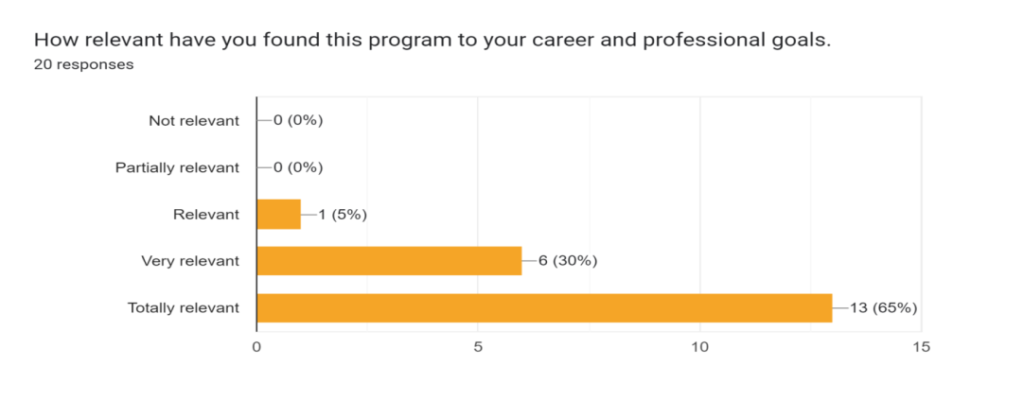
Various interns also described the program as a catalyst to their career amongst other things:

3.2.2 Programme Alumni Network
To strengthen networking and collaboration, DBF has created an interconnected community as a platform for interaction, communication and collaboration between interns of all 3 cohorts. the generation of ideas and innovative solutions to AMR and other One Health challenges across the continent. This initiative is a significant milestone for Africa, providing a safe and supportive space for youth to inspire and empower one another, find their voices, and collectively lead into the future with a true pan-African spirit. Additionally, due to the strong bonds formed during the programme, some members of the cohort have continued to meet and engage in AMR related activities demonstrating the enduring impact beyond the internship. Furthermore, this network serves as a reservoir and pathway for nurturing future public health leaders across Africa.
3.3 Mentorship, Coaching and Networking Opportunities
The pan-African nature of the program provided the interns with cross-border collaborations and networking opportunities.
Networking opportunities were also enhanced by interns’ participation in conferences (See image 13). The programme design provided every intern with a mentor relevant to their career and fields of interest. The match was described as ‘perfect’ several times. Mentors were also pleased with the pairing and reported that continuing this relationship beyond the programme was likely.
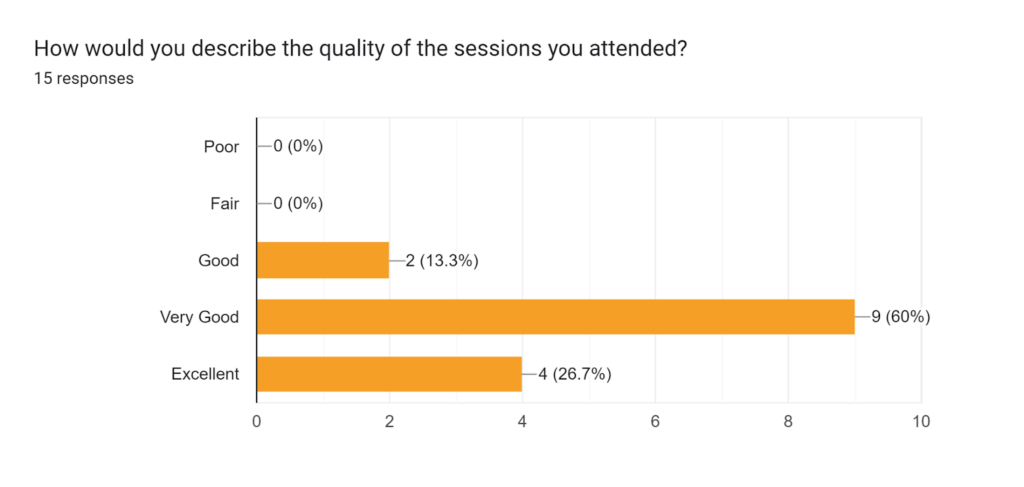
Quality of the Internship Sessions
The interns also appreciated this as it was the first time some of them had proper mentors.

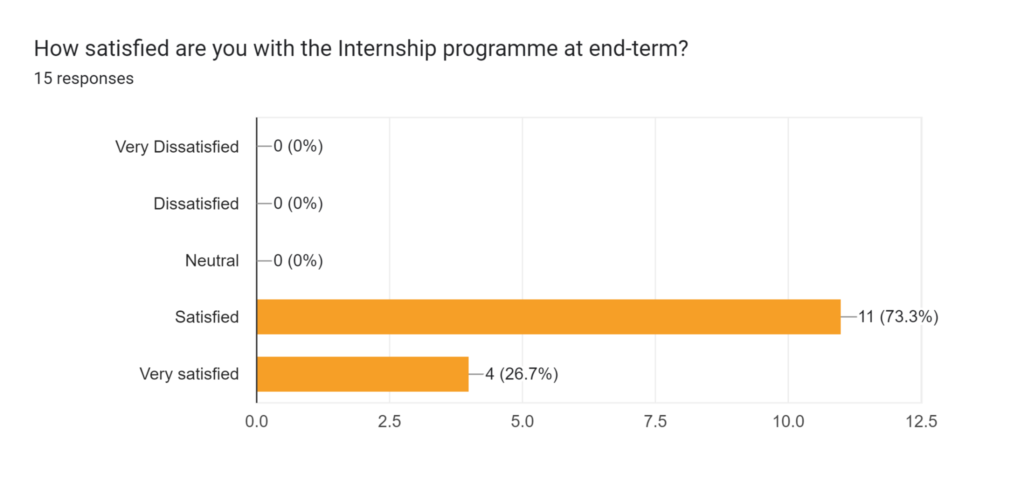
The interns attended a coaching session on how to identify mentors and coaches, identify their career pathways and contribute to a mentor-mentee relationship.
The mentors expressed a deep satisfaction with the program. They highlighted its timeliness and importance to the public health landscape. There was no shortage of praise for the organisation and the interns

Furthermore, there were also opportunities for networking with the mentors.
3.4 Life After Internship
The Life After Internship survey served as an evaluation measure to assess the program’s impact, providing insights into its extended effects on the interns’ careers. Surveys were conducted for Cohorts 1 and 2, revealing that the majority of interns have applied the knowledge acquired from the program in various ways. This includes advocacy and raising awareness through community engagements, webinars, and social media interactions. Interns have also collaborated on projects such as writing research papers, participating in health innovation challenges, and applying for grants. Many interns maintained relationships with their mentors and continued to collaborate on research papers. Additionally, some interns have established AMR NGOs, engaged in cross-cohort collaborations, secured further education scholarships on AMR, and successfully obtained AMR-related grants. Plans are underway to conduct the survey for this cohort to further assess the program’s impact.
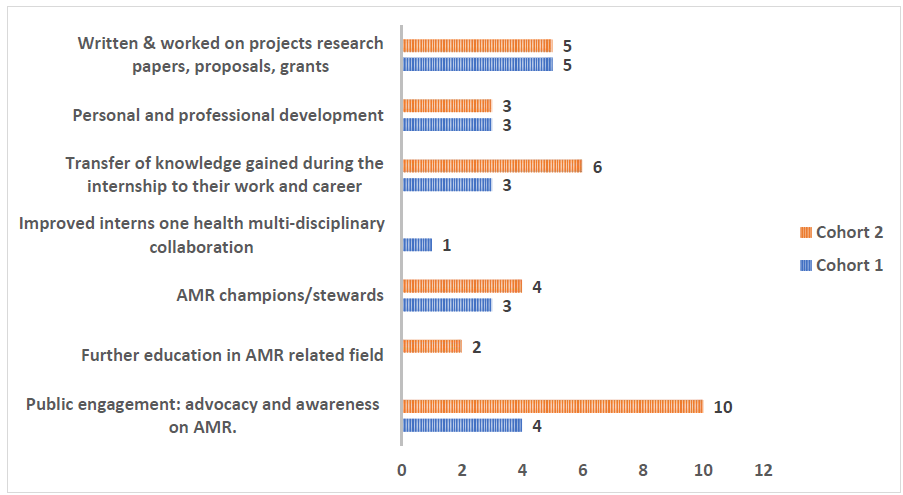
Image 18: Interns’ application of Lessons learned from Cohorts 1 and 2
CONCLUSION AND RECOMMENDATIONS
In conclusion, Ducit Blue Foundation successfully implemented a remote internship program for 20 recent graduates representing five One Health disciplines. Additionally, collaboration with 2 partners, 3 student associations and a data focussed organisation, enhanced our coordination of the internship program, delivery of six core modules, and monitoring, evaluation, accountability, learning, and communication of project outputs. The program had a significant impact on the interns, promising positive outcomes for the fight against AMR across Africa.
However, there remains a need to further enhance the capacity of the public health workforce for the future in line with delivering the Africa We Want. Capacity building and mentorship are central pillars to achieving this goal. While we plan to expand the reach and quality of the program, it is important to acknowledge the existing limitations for achieving this. Therefore, there is a need to forge more partnerships and secure strategic investments, expertise, and other resources from relevant stakeholders. This approach will enable the effective addressing of these challenges and ensure sustainability and effectiveness for the future.
We have also paved the way for succession planning by welcoming one of the interns into the DBF family. They will play a pivotal role in spearheading AMR youth initiatives across the continent. This act of employing one of the interns signifies our commitment to nurturing and empowering emerging leaders in the field of public health.

REFERENCES
- Murray J, Ikuta S, Sharara F, Swetschinski L, Robles Aguilar G, Gray A, et al. Global burden of bacterial antimicrobial resistance in 2019: a systematic analysis. The Lancet. 2022 Feb;399(10325):629–55
- Antimicrobial Resistance Collaborators. The burden of bacterial antimicrobial resistance in the WHO African region in 2019: a cross-country systematic analysis. Lancet Glob Health. 2024 Feb;12(2):e201-e216. doi: 10.1016/S2214-109X(23)00539-9.
- Jonas,Olga B.; Irwin, Alec; Berthe,Franck Cesar Jean; Le Gall,Francois G.; Marquez,Patricio V.. Drug-resistant infections : a threat to our economic future (Vol. 2) : final report (English). HNP/Agriculture Global Antimicrobial Resistance Initiative Washington, D.C. : World Bank Group. http://documents.worldbank.org/curated/en/323311493396993758/final-report
- World Health Organisation. Urgent health challenges for the next decade. 2020. Available from: https://www.who.int/news-room/photo-story/photo-story-detail/urgent-health-challenges-for-the-next-decade
- World Health Organisation. Antimicrobial Resistance. 2023. Available from: https://www.who.int/news-room/fact-sheets/detail/antimicrobial-resistance#:~:text=It%20is%20estimated%20that%20bacterial,development%20of%20drug%2Dresistant%20pathogens
- World Health Organisation. Global action plan on antimicrobial resistance. 2016. Available from: https://www.who.int/publications/i/item/9789241509763
- Africa CDC. African Union Framework for Antimicrobial Resistance Control 2020–2025. Available from – https://africacdc.org/download/african-union-framework-for-antimicrobial-resistance-control-2020-2025/
- United Nations. 2021. Young People’s Potential, the Key to Africa’s Sustainable Development. Available from – https://www.un.org/ohrlls/news/young-people%E2%80%99s-potential-key-africa%E2%80%99s-sustainable-development
